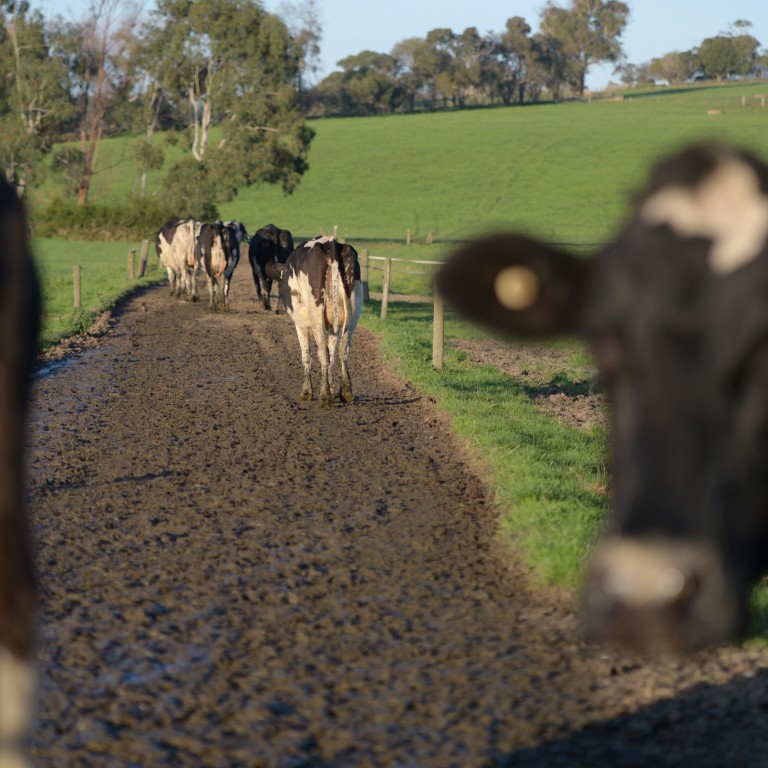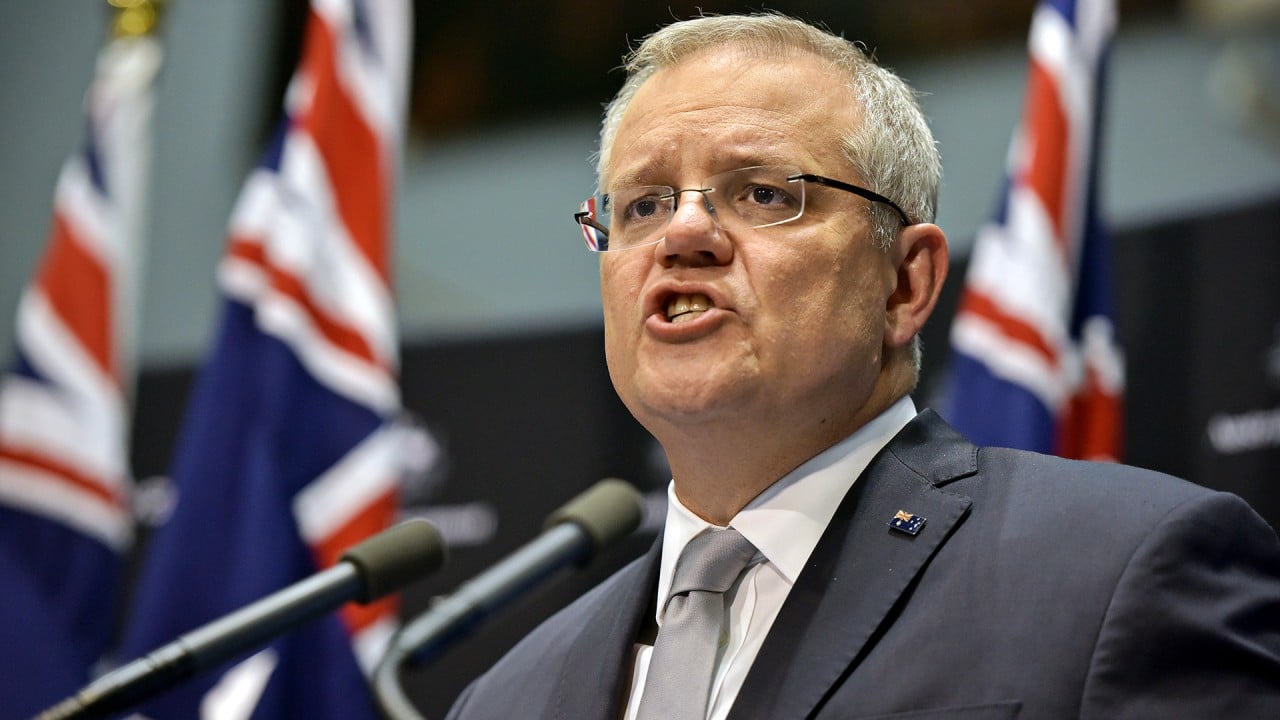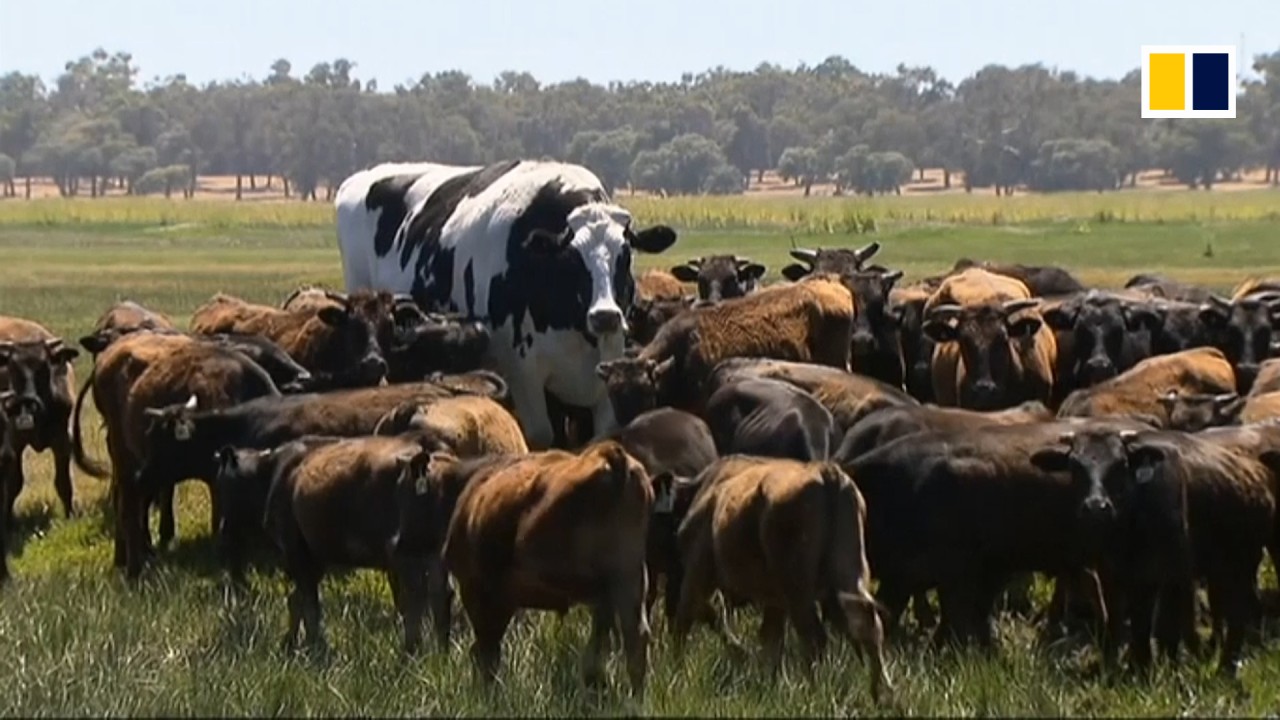
Australia beef exports ‘rescued’ after China ban by demand from US, South Korea
- Australian beef exporters in May capitalised on supply shortages in the US and South Korea due to coronavirus disruptions
- But with US production coming back online in June, new markets for Australian beef may not last
A slump in US beef production in May as a result of the coronavirus pandemic has "rescued" Australian beef exports hurt by a Chinese ban on four of its abattoirs, export data shows, though new demand is unlikely to last long term.
The Australian state of Queensland – home of three of the four meat processors banned from exporting to China in May due to labelling and compliance issues – redirected most of its excess beef to the United States and South Korea, traditionally a big importer from the US, according to Meat & Livestock Australia (MLA), the nation’s red meat and livestock research and marketing body.
“Queensland exports have pivoted towards the US and South Korea, as volumes to these markets lifted substantially in June relative to pre-suspension levels,” MLA said in an update late last week.

07:34
Australia and China cooperation too valuable for 'nonsensical' decoupling
The volume of Queensland’s chilled and frozen beef exports to the US in June was 153 per cent higher than in January, while exports to South Korea last month exceeded January’s level by 77 per cent, according to data from the Australian Department of Agriculture, Water and the Environment.
Exports to the US in June were 30 per cent above the same month last year, while export volume to South Korea was the highest since December 2018.
However, the “rescue” will not last nor does it signal permanent new markets for excess Australian beef, with production in the US now getting back on track, MLA warned.
“US production levels are now back above typical levels, so demand through July may be slightly subdued relative to June,” it said.
The US was not the only country whose domestic beef industry was hit hard by Covid-19 disruptions. Brazil and China too had lower-than-expected cattle slaughter and beef production, according to a new report by the United States Department of Agriculture (USDA) Foreign Agricultural Service.
While supply is volatile, demand for imported meat in China has been particularly strong despite the outbreak, the USDA said, providing an upside for global producers including the four Australian abattoirs when bans are lifted.
“Despite headwinds caused by Covid-19 and disruptions to the economy and food service, demand growth [in China] during the first five months of the year exceeded expectations,” it said in an update this week.

01:49
Australia suspends extradition treaty with Hong Kong, offers residency pathway for Hongkongers
New data on Thursday showed the Chinese economy grew 3.2 per cent in the second quarter compared to a year earlier, the first major economy to show a recovery from the coronavirus shock.
On June 11, the Australian government submitted a formal response to China’s General Administration of Customs over the ban on the four meat processors, meeting a 30-day deadline. The Chinese government is reviewing the submission.
Australia firms say China tensions now bigger risk than economy: survey
“Since the suspensions were notified on the 11 May 2020, the department has worked closely with the affected establishments and has completed its investigations into the non-compliances,” said a spokeswoman from the Department of Agriculture, Water and the Environment.
“The department has verified that appropriate corrective actions have been implemented by the four suspended establishments and were effective in addressing the root causes of the identified non-compliances.”
The ban over export non-compliance issues included Queensland’s Kilcoy Pastoral, JBS Beef City and JBS Dinmore, as well as the Northern Cooperative Meat Company in the state of New South Wales.

00:43
1,400kg cow in Australia spared from slaughter for being too big
Australia’s Minister for Agriculture David Littleproud last month cautioned exporters over their tardiness, reminding them they must meet the specifications of the country to which they are shipping goods.
China has since told its citizens to avoid travelling to Australia over allegations of racism towards Chinese and Australia has claimed it has been hit by cyberattacks by a state-backed actor, which some in the local media have blamed on China.

